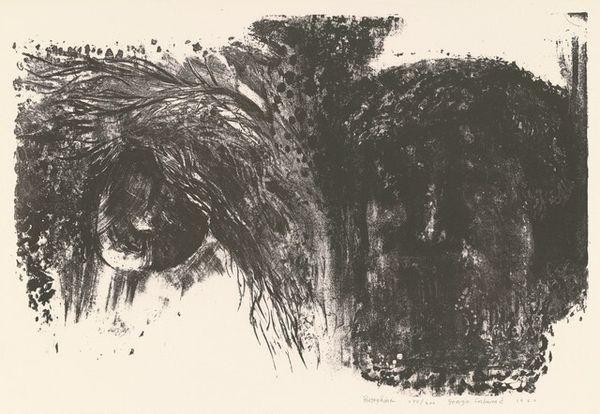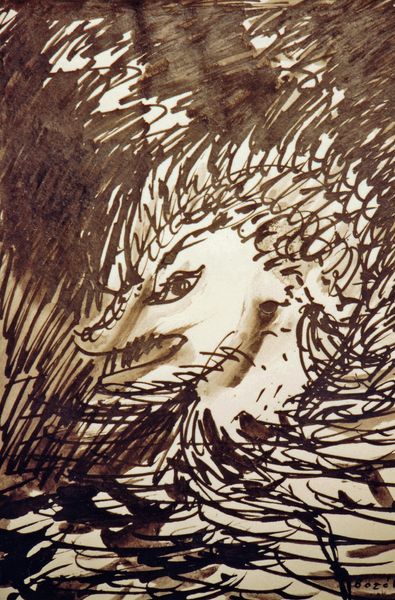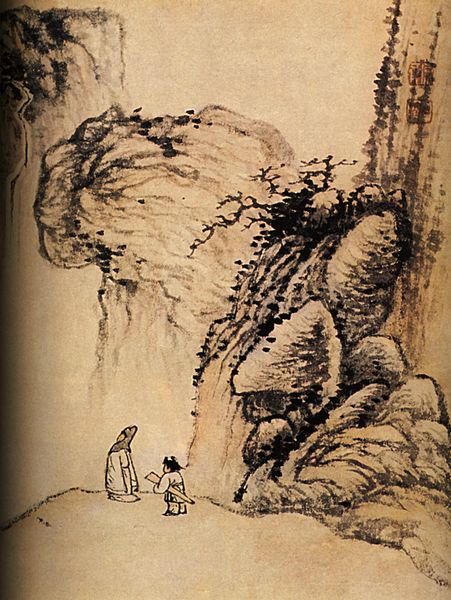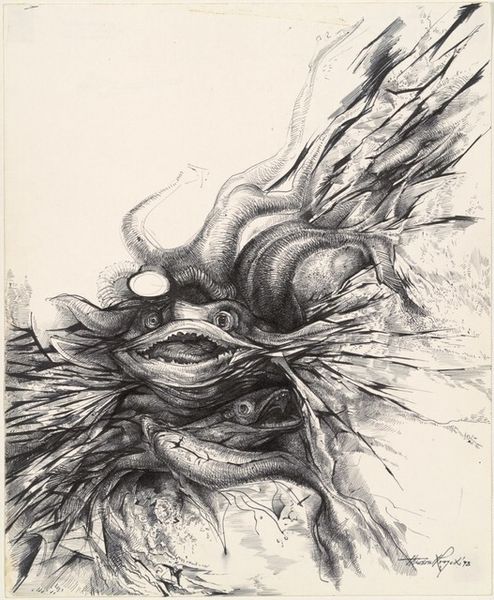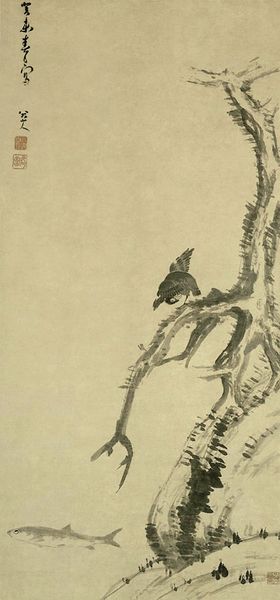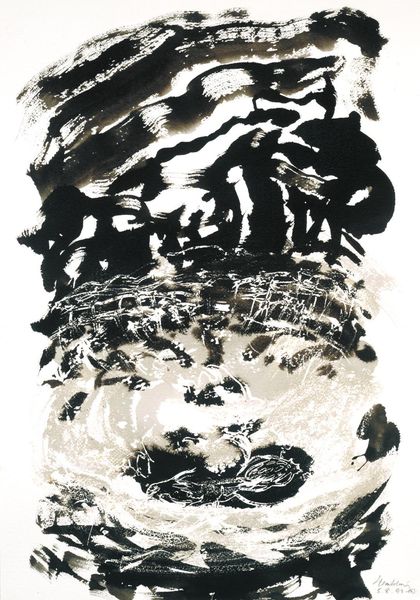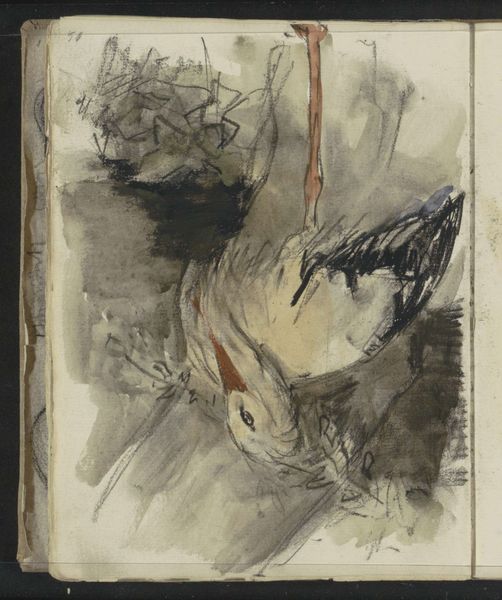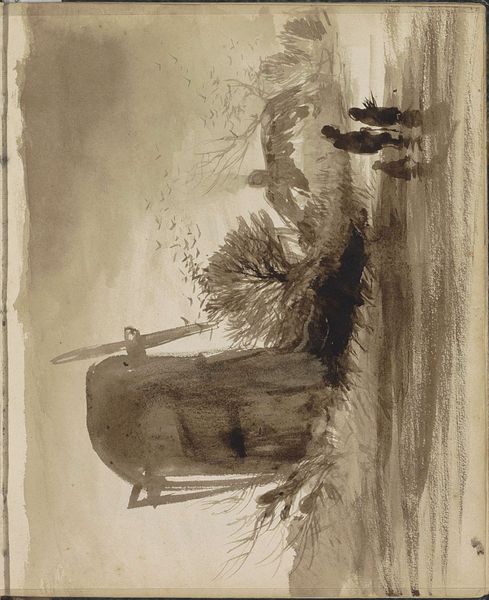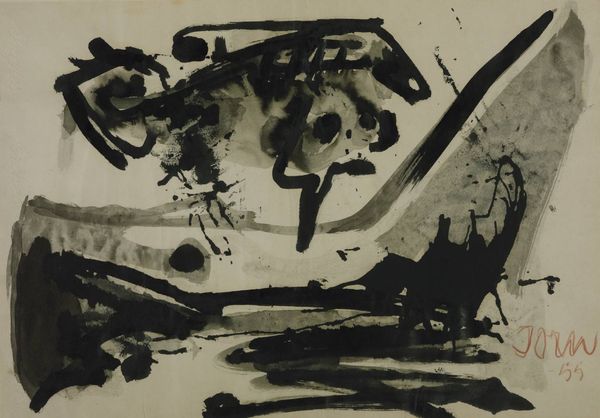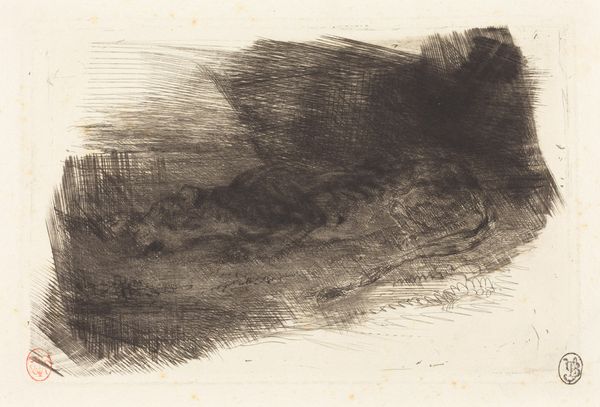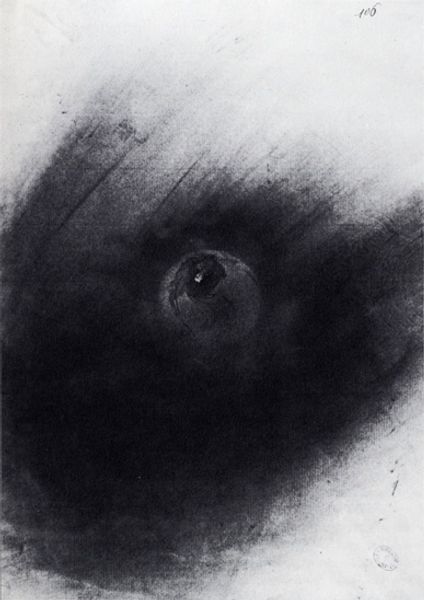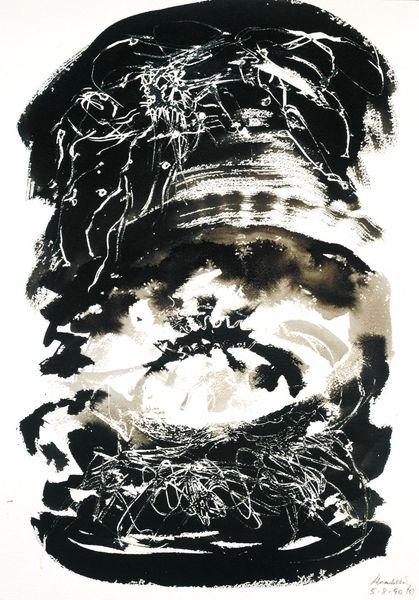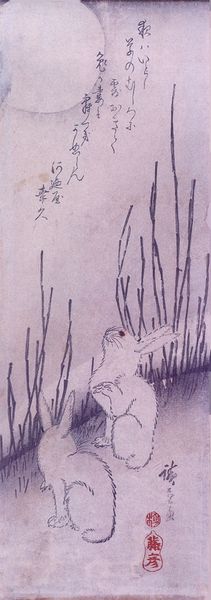
drawing, paper, ink
#
drawing
#
asian-art
#
landscape
#
ukiyo-e
#
paper
#
ink
#
coloured pencil
#
mountain
#
calligraphy
#
monochrome
Dimensions: 24.5 x 38 cm
Copyright: Public domain
Editor: This is Shitao's "The Solitary Rock" from 1699, created with ink on paper. It’s strikingly simple, almost stark, but also quite imposing given how much space that monochrome rock occupies. What do you see in this piece? Curator: The rock looms large, doesn’t it? Beyond just being a landscape study, Shitao, especially during the Qing dynasty, may have been making a silent, powerful statement. Consider the cultural context: many artists retreated into depictions of nature to indirectly critique the new rulers. Editor: So the rock could be symbolic? Curator: Precisely. It can embody resistance, steadfastness against shifting political sands. This work emerged after the fall of the Ming Dynasty. We must consider that Shitao was a Ming prince. Do you see how the strokes of the ink seem almost… defiant? Editor: Now that you mention it, yes. The jagged edges and the solitary nature of the rock feel much less like a neutral observation and more like a... protest. Curator: The “solitary” aspect is critical. Was Shitao representing personal resilience or advocating a broader cultural stance through it? It brings philosophical and feminist ideas to the fore as well. Think of the rock not as traditionally masculine strength, but as endurance, silent defiance in the face of pressure to conform, like the earth itself—unmoving despite changing winds. It invites us to engage with historical context while reflecting on broader themes of resistance and the complexities of identity. Editor: It’s amazing how much depth a seemingly simple image can hold. I came in seeing a nice landscape, and now I see so much more about resilience, politics, and even gender. Curator: Art is always a dialogue, reflecting both its time and timeless human experiences. I’m so glad that we looked at the historical contexts of the work together!
Comments
No comments
Be the first to comment and join the conversation on the ultimate creative platform.
